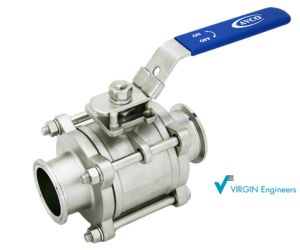As industries rapidly evolve toward automation and sustainability, the importance of electric machines such as generators is becoming more significant than ever. Electric generators are indispensable for providing backup power, running remote operations, and supporting renewable energy systems. While much attention is paid to the motor, wiring, and energy output, there’s a crucial part of a generator’s operation that often goes unnoticed—fluid control systems, particularly valves.
Valves are vital for managing the flow of coolants, fuel, lubricants, and exhaust gases. The choice of valve can directly affect the generator’s longevity, energy efficiency, and operational reliability. As generators are integrated into complex systems that demand higher performance, the role of precision-engineered valve systems becomes increasingly critical.
The Core of Generator Performance
Electric generators convert mechanical energy into electrical energy using electromagnetic induction. Whether powered by gasoline, diesel, natural gas, or renewable sources, all generators need a precise internal environment to function at peak efficiency. Fluid systems help manage temperature, pressure, and chemical balance—keeping the generator running smoothly under different loads.
One of the most important aspects of fluid system design in generators is valve selection. These components manage the flow of liquids and gases at critical junctures. A poorly chosen valve can lead to leaks, inconsistent flow, or even dangerous pressure build-up.
Types of Valves in Electric Generators
Several types of valves are used within generator systems, each with a unique function:
- Fuel Control Valves – Manage the supply of fuel to the engine.
- Coolant Valves – Direct coolant flow to maintain optimal operating temperature.
- Exhaust Valves – Regulate the release of combustion gases.
- Oil Valves – Ensure proper lubrication by managing oil flow and pressure.
Each of these valves must be capable of operating in harsh conditions—extreme heat, high pressure, and constant vibration. The material, sealing mechanism, and response time of a valve determine how well it performs under these challenges.
Valve Materials Matter
Material selection is critical in environments exposed to fuel, heat, and pressure. Valves made of brass, stainless steel, or specialized plastics each serve different purposes. High-performance applications typically use corrosion-resistant materials that can handle aggressive chemicals and temperature swings.
Among these, Teflon ball valves are valued for their resistance to chemical degradation and high thermal stability. These valves are often used in coolant and chemical flow systems within electric machines where contamination and corrosion must be prevented. Their smooth operation and low friction properties contribute to reliable sealing and long-term durability.
Control System Integration
Modern electric generators are no longer standalone units. They’re often integrated into larger building management or industrial control systems. In this context, valve systems must support automation. Smart valves equipped with sensors and actuators are increasingly being used to give operators better control over fuel injection, cooling cycles, and pressure relief operations.
By using programmable logic controllers (PLCs) and sensors, operators can remotely monitor valve status and performance in real-time. This integration not only improves efficiency but also minimizes downtime by alerting teams to potential faults before they escalate.
Maintenance Benefits of Advanced Valves
Routine maintenance is essential to keep electric generators in good working condition. Valves that are easy to service can significantly reduce the time and cost associated with this task. Some high-end valves come with features like:
- Quick-disconnect fittings
- Self-cleaning mechanisms
- Modular designs for easy replacement
Investing in high-quality valve systems helps reduce operational costs in the long term. Failures in valve systems are not only expensive but may also cause downstream effects like overheating, reduced output, or complete shutdowns.
Applications Across Industries
Electric generators are used in virtually every industry. Whether it’s for emergency backup power in hospitals, off-grid energy in construction sites, or continuous operation in data centers, fluid control systems remain crucial. In each case, the operating environment influences the type and specification of the valves used.
For example:
- Healthcare generators require high-precision, hygienic valve systems.
- Mining generators need rugged valves that withstand dust and high-impact conditions.
- Data centers rely on valves that enable rapid response to temperature fluctuations.
Each application brings its own set of challenges, which makes the versatility and dependability of valve components all the more important.
Environmental and Energy Efficiency Considerations
With the world moving toward sustainability, the efficiency of all machine components—including valves—is under scrutiny. Valves that reduce leakage, support optimized fuel use, and enhance thermal regulation contribute directly to the generator’s carbon footprint. Industries now favor valve designs that promote longer service life and minimal maintenance.
Sustainability also involves using recyclable materials and minimizing chemical usage. Valves with PTFE (Teflon) linings or seals are often chosen for their low reactivity and eco-friendly profile.
Conclusion
As electric generators become more central to global infrastructure, the importance of fluid control systems within them can’t be overstated. Valves play a silent but critical role in ensuring that these machines run efficiently, safely, and reliably. Whether it’s a simple shut-off valve or an advanced, sensor-driven control valve, the right selection can drastically improve generator performance and lifespan.
With innovations continuing to emerge in materials and automation, the future of valve systems in electric machines looks promising. Investing in high-performance solutions today—like the use of Teflon ball valves in corrosive environments—can lead to major operational advantages tomorrow.

